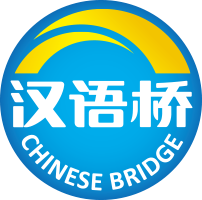SHANDONG ALUMINUM VOCATIONAL COLLEGE
山东铝业职业学院

山东铝业职业学院始建于1958年,2004年7月,经山东省人民政府批准、教育部备案,成为全日制高等职业院校。是我国铝行业系统内唯一的一所高职院校,是国家首批“高技能人才培养示范基地”,是教育部首批现代学徒制行业试点院校,是全国职工教育培训示范点,是全国有色金属行业职工继续教育基地。
学院先后荣获全国企业管理培训工作先进集体、全国职工教育先进单位、山东省职工教育先进单位、山东省企业教育培训先进单位、全省职业技能鉴定工作先进单位、中国有色金属行业职工教育先进单位、有色金属行业职业技能优秀鉴定站等荣誉称号。
2019年4月学院主办单位——山东铝业有限公司成为教育部首批24家“产教融合型企业”之一,同时学院被省教育厅评为“山东省校企一体化合作办学示范院校”、公司被评为“山东省校企一体化合作办学示范企业”,“校企相融、产学互动”的办学特色得到上级教育主管部门的高度认可。
学院总占地面积1674亩,包括淄博和威海两校区,其中威海新校区总占地面积约924亩,总建筑面积35万平方米,分两期建设,一期占地面积约597亩,建筑面积19.7万平方米。
学院设立了智能制造与物联网学院、商学院、互联网学院、冶金与建工学院、思政教学部等9个教学单位,拥有工业机器人、有色冶金技术、大数据技术与应用等39个专业,形成以有色冶金技术、有色机电为特色的专业群,其中有色冶金技术、炭素加工技术专业为山东省所独有。各类在校生2.3万余人,历年毕业生就业率均在98%以上。办学六十多年来,为有色金属行业和山东省地方企业培养输送了6万余名懂经营、会管理、能操作的技术技能人才,成为名符其实的铝行业技术人才“摇篮”。
近年来,学院坚持产教融合、校企合作的企业办学模式,积极探索职业教育改革和教育教学实践,逐渐积淀并形成了“五个相融”的企业办学特色、“三个三分之一”的人才培养模式、“三个阶段”的实习模式及“三个维度”的素质培养模式,将校企合作、产教融合的办学特色落到实处。
Shandong Aluminum Vocational College was founded in 1958 and became a full-time higher vocational college in July 2004 with the approval of the Shandong Provincial People's Government and the record of the Ministry of Education. It is the only higher vocational college in China's aluminum industry system, the first batch of "high-skilled personnel training demonstration bases" in China, the first batch of modern apprenticeship industry pilot colleges in the Ministry of Education, the national demonstration site for employee education and training, and the national continuing education base for employees in non-ferrous metals industry.
The College has successively won the honorary titles of National Advanced Collective of Enterprise Management Training, National Advanced Unit of Staff Education, Advanced Unit of Staff Education in Shandong Province, Advanced Unit of Enterprise Education and Training in Shandong Province, Advanced Unit of Professional Skills Appraisal in the whole province, Advanced Unit of Staff Education in Nonferrous Metals Industry in China, Excellent Professional Skills Appraisal Station in Nonferrous Metals Industry, etc.
In April 2019, shandong aluminum industry Co., Ltd., the organizer of the college, became one of the first batch of 24 "production-education-integrated enterprises" of the Ministry of Education. At the same time, the college was rated as "Shandong Province School-enterprise Integration Cooperation Model School" by the Provincial Department of Education, and the company was rated as "Shandong Province School-enterprise Integration Cooperation Model School". The school-running characteristics of "School-enterprise Integration and Industry-education Interaction" were highly recognized by the higher education authorities.
The college covers a total area of 1,674 mu, including Zibo and Weihai campuses, of which the new Weihai campus covers a total area of about 924 mu with a total construction area of 350,000 square meters. It will be built in two phases, with the first phase covering an area of about 597 mu and a construction area of 197,000 square meters.
The College has set up 9 teaching units, including Intelligent Manufacturing and Internet of Things College, Business School, Internet College, Metallurgy and Construction College, and Ideological and Political Education Department. It has 39 majors, including industrial robots, non-ferrous metallurgical technology, big data technology and application, forming a professional group featuring non-ferrous metallurgical technology and non-ferrous electromechanical technology, among which non-ferrous metallurgical technology and carbon processing technology are unique to Shandong Province. There are more than 23,000 students of all kinds, and the employment rate of graduates over the years is over 98%. Over the past 60 years, it has trained more than 60,000 technical and technical talents who know how to operate, manage and operate for the nonferrous metals industry and local enterprises in Shandong Province, and has become a veritable "cradle" of technical talents in aluminum industry.
In recent years, the college has adhered to the enterprise-run mode of integration of production and education and school-enterprise cooperation, actively explored vocational education reform and education and teaching practice, and gradually accumulated and formed "five integration" enterprise-run characteristics, "three thirds" talent training mode, "three stages" internship mode and "three dimensions" quality training mode, and implemented the school-enterprise cooperation and integration of production and education.


